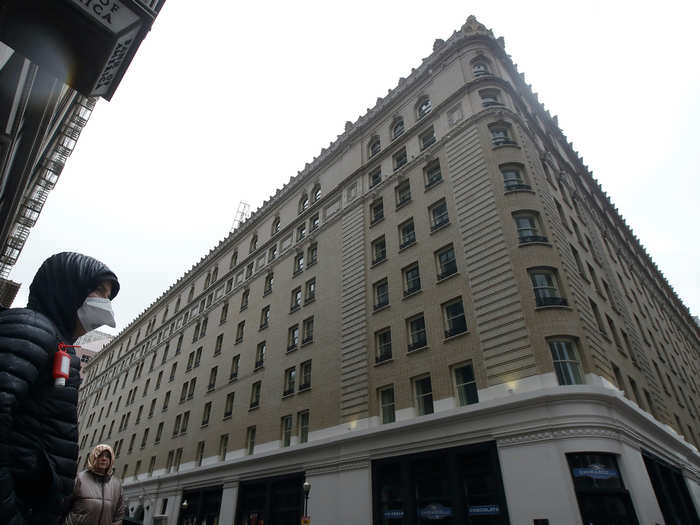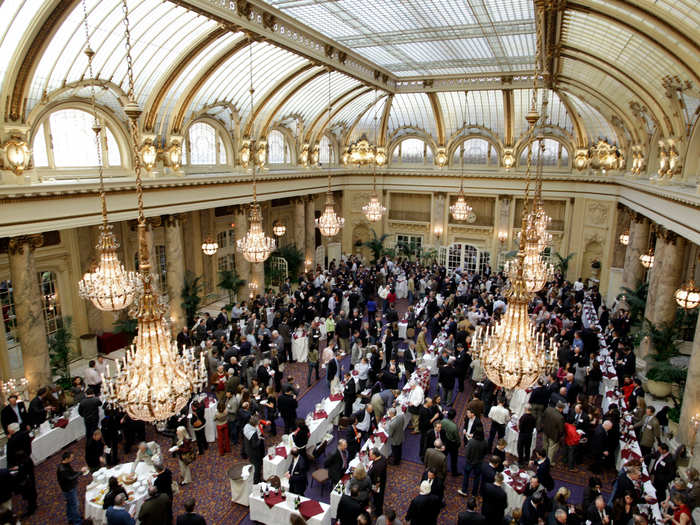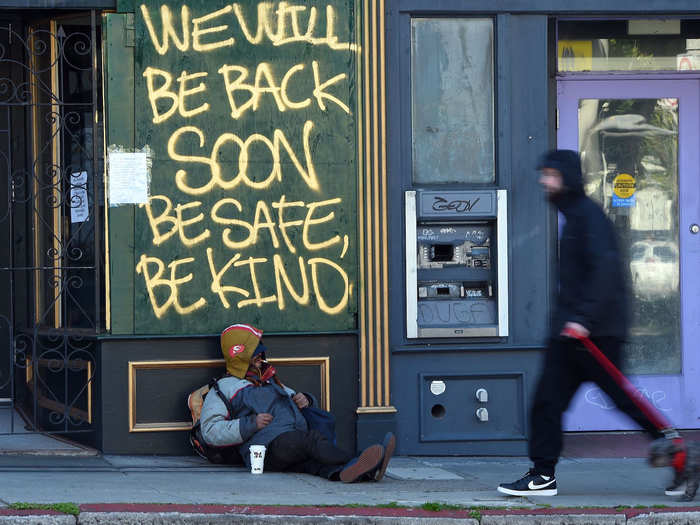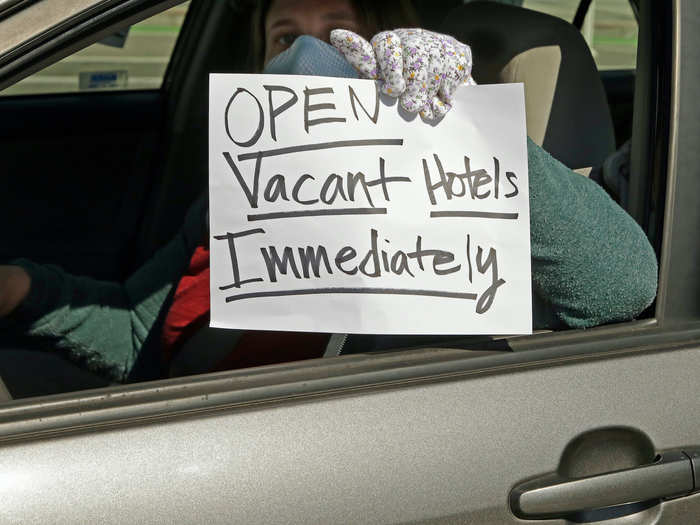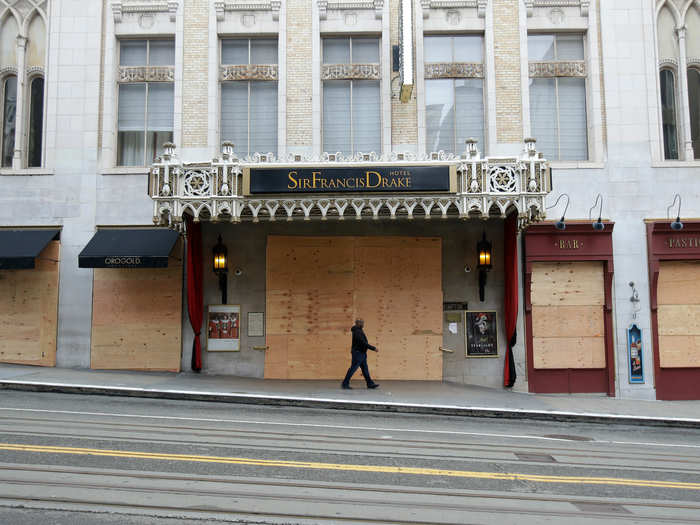Another idea that has been percolating since the order went into effect was to turn the city's hotels into makeshift shelters.
Even before the order was announced, travel and tourism in San Francisco had dropped off considerably, with layoffs in the hotel industry ensuing and tens of thousands of hotel rooms sitting empty.
According to a San Francisco Chronicle report, there were an estimated 30,600 empty hotel rooms in San Francisco as of March 23. A Curbed SF report places that number as high as 33,000.
City leaders, as well as officials across the state of California, have been pushing forward with securing rooms to house those who are homeless as well as the estimated 19,000 living in congregate settings in San Francisco such as SRO hotels, where residents share bathrooms and other common spaces.
In late March, City Hall began requesting proposals from hotels in the city to house SRO residents who need to quarantine.
And the hotels, struggling from a lack of guests during the outbreak, jumped at the opportunity to house some residents.
There were initially 31 hotels offering up a collective 8,310 rooms for a discounted rate following the ask from City Hall, as the San Francisco Chronicle reports. These hotels, including some of the city's ritziest, such as The Palace Hotel, were interested in filling rooms with residents of SRO hotels and other such facilities.
But some officials advocated filling those rooms with those living on the streets, an idea that still isn't in motion yet.
However, progress has been made to start identifying rooms for homeless people in San Francisco who have tested positive for COVID-19 or who have been tested and are waiting for results to return. The most vulnerable within the homeless community, people over the age of 60 with underlying health issues, also qualify to be housed in a hotel room designated for this purpose.
But some officials and homeless advocates argue that the thousands of empty hotel rooms in the city should be used to house the entire homeless population in the city as a preventative measure, regardless of the need for self-isolation.
And so on Tuesday, an emergency ordinance was introduced by five members of the city's Board of Supervisors that would require San Francisco to procure and rent 7,000 hotel rooms, plus 1,250 for first responders and healthcare workers who need to self-isolate.
The estimated cost of renting 7,000 hotel rooms for 90 days sits at $105 million.
If this ordinance passes, those living on the streets would have space to shelter-in-place just as much of the rest of the city has been doing.
Housing members of the homeless community could also prevent an outbreak among its members. If the virus were to spread in the community, the healthcare system could be overwhelmed, hindering the city's long-time goal of "flattening the curve" amid the pandemic.
The city, and the rest of the Bay Area that also took early social distancing measures, is being lauded across the US for its proactivity. Some health experts think the shelter-in-place order is already paying off, with case counts lower than elsewhere in the country. However, they're still rising, and officials stress the importance of continuing with taking social distancing precautions.
Turning to the thousands of empty hotel rooms in the city to house the homeless community could contribute to social distancing efforts. And seeing as how nonessential travel is discouraged and that the city likely won't be welcoming its typical volume of visitors for a while, hotels could stay afloat by helping the city do so.

